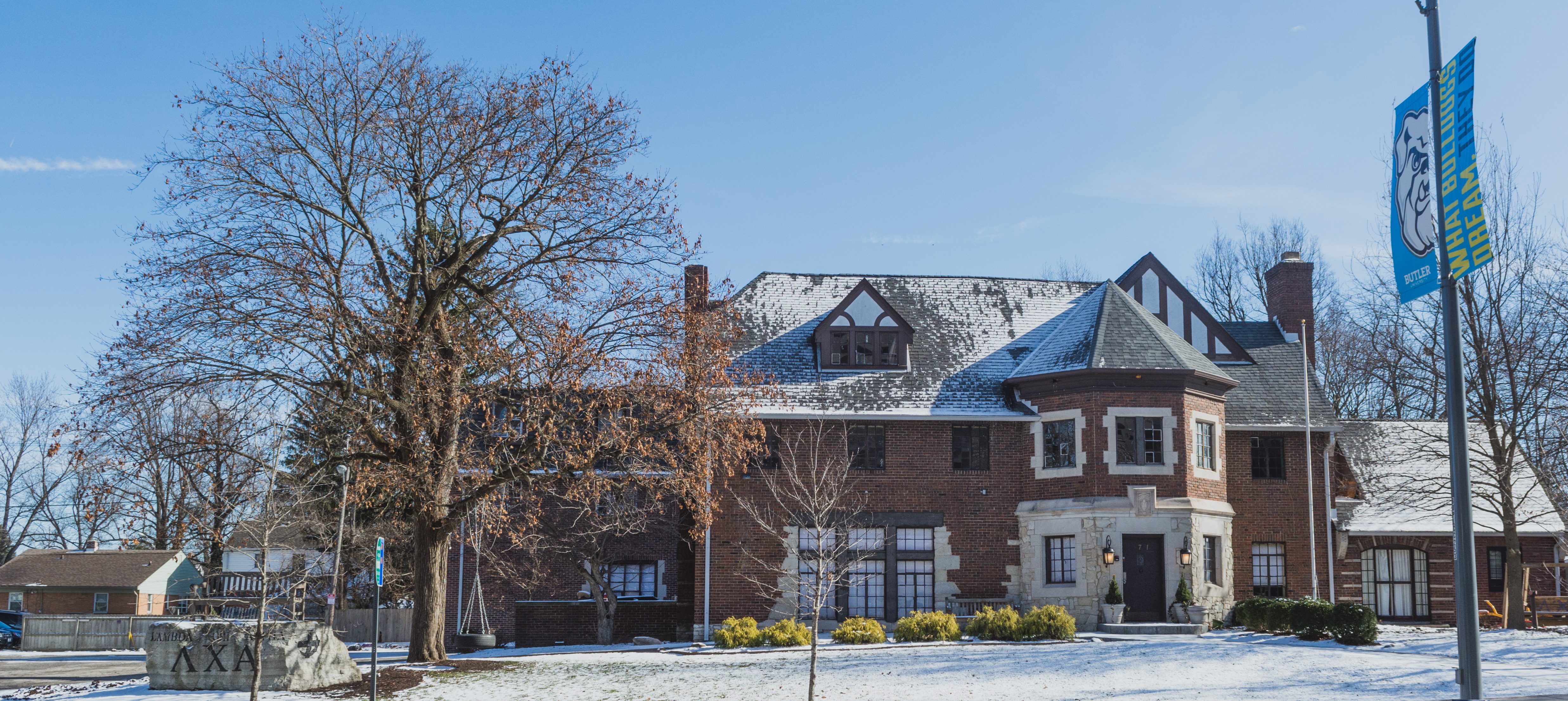Photo by Adam Cvik.
KATIE GOODRICH | EDITOR-IN-CHIEF | kmgoodri@butler.edu
About 60 men are settling into new homes on campus after vacating the Lambda Chi Alpha chapter house.
Two weeks ago, Lambda’s national headquarters closed Butler’s chapter. The brothers living in the house had five days to move out entirely.
Neil Reinke, a junior psychology major, was one of the members who had to uproot his life and move to different university housing.
“It all happened right away after we found out we were getting kicked off,” Reinke said. “It felt like the university was trying to handle it right away, which I understand because we had to go somewhere, but it would’ve been nice to have more than 24 hours.”
The former members found out about the news on a Monday, filled out housing requests on Tuesday and were assigned rooms by Thursday. Then, they had to move out by Saturday at 5 p.m., per the housing corporation that owns and operates their house.
Due to the large size of the first year class and other variables, there were not too many spaces available on campus, interim Vice President for Student Affairs Anne Flaherty said in a previous interview. Most of the members were placed in University Terrace, which is Butler’s cheapest apartment housing option at about $4,000 per semester. It is located on the far north side of campus past Holcomb Gardens.
Chelsea Culp is the Apartment Community Assistant in UT, which is the equivalent of a Resident Assistant in a dorm. She handles paperwork and oversees the building and its residents.
UT holds about 120 people, and it has vacancies at the beginning of the semester.
“I saw articles on Facebook about Lambda being kicked off, and I knew I was going to get some of them in my building,” Culp said. “My boss was on vacation, so it made the process a lot harder.”
Reinke now lives in UT in an apartment with three former Lambdas. He said other brothers are living with random roommates if no apartment was completely open.
“Choosing a room was very rushed,” he said. “You had to pick right then and there who you wanted to live with and just hope it worked out.”
Moving out of the fraternity house was a chaotic experience for Reinke. Former brothers with trucks were bombarded with requests to help move mattresses and couches, and some parents who live nearby came to help.
“There were so many people in the hallways moving everything,” Reinke said. “It was very hectic and overwhelming. Everyone was scrambling, since we couldn’t get into UT until Friday and we had to be gone forever from the house on Saturday.”
Reinke said only people studying abroad were allowed to leave items in the house, despite mentions of storing things there.
“Some people have two mattresses now, since we have to use the one from the university and we also had to bring one for in Lambda,” he said. “There’s just not enough room for everything.”
Culp described the process as stress-filled.
“The Lambdas were stressed because they were moving,” she said. “I was stressed because they were like propping doors open, and I didn’t know what was going on. Some of my other residents moved so the Lambdas could live together, so they were adjusting too. It was just a crappy situation.”
The new influx of residents changed the dynamic of the usually quiet UT. “The atmosphere of UT has definitely changed,” Culp said. “With that many more people in a building, it’s gonna probably be louder.”
Reinke said the former brothers are trying to make the best of the situation and make a point of seeing one another. A bright spot is that a lot of them went to UT together.
“We’re making the best of it, even though it’s not a place any of us would’ve chosen to live,” he said. “A silver lining in all of this is that the friendships will last, even if we don’t all live together and see one another all the time.”
Culp and Reinke both mentioned more noise complaints and a feeling of separation between the residents. When a fire alarm went off one night, people evacuated in two distinct groups: the previous residents and the former Lambdas.
“It was very clear we kind of invaded their space,” Reinke said. “It’s hard for the university and the rest of UT to allow us more time to adjust to a new lifestyle. They wanted us to jump right in and that’s not happening. We need time.”
As part of her role, Culp said she hopes to build a community among all the residents.
“Everyone can come and interact with me and one another, so we can get to know one another,” she said. “But it depends on them. If they want to interact with other people, it’s on them. I can facilitate the community, but I can’t force them to do it. Being in an apartment, you don’t have to interact if [you] don’t want to.”
Culp said she will host a community event soon to ease the transition.
The Collegian will continue to investigate Lambda Chi Alpha’s closing, including the the incidents that suspended them, the timeline of events and a potential new fraternity on campus.
